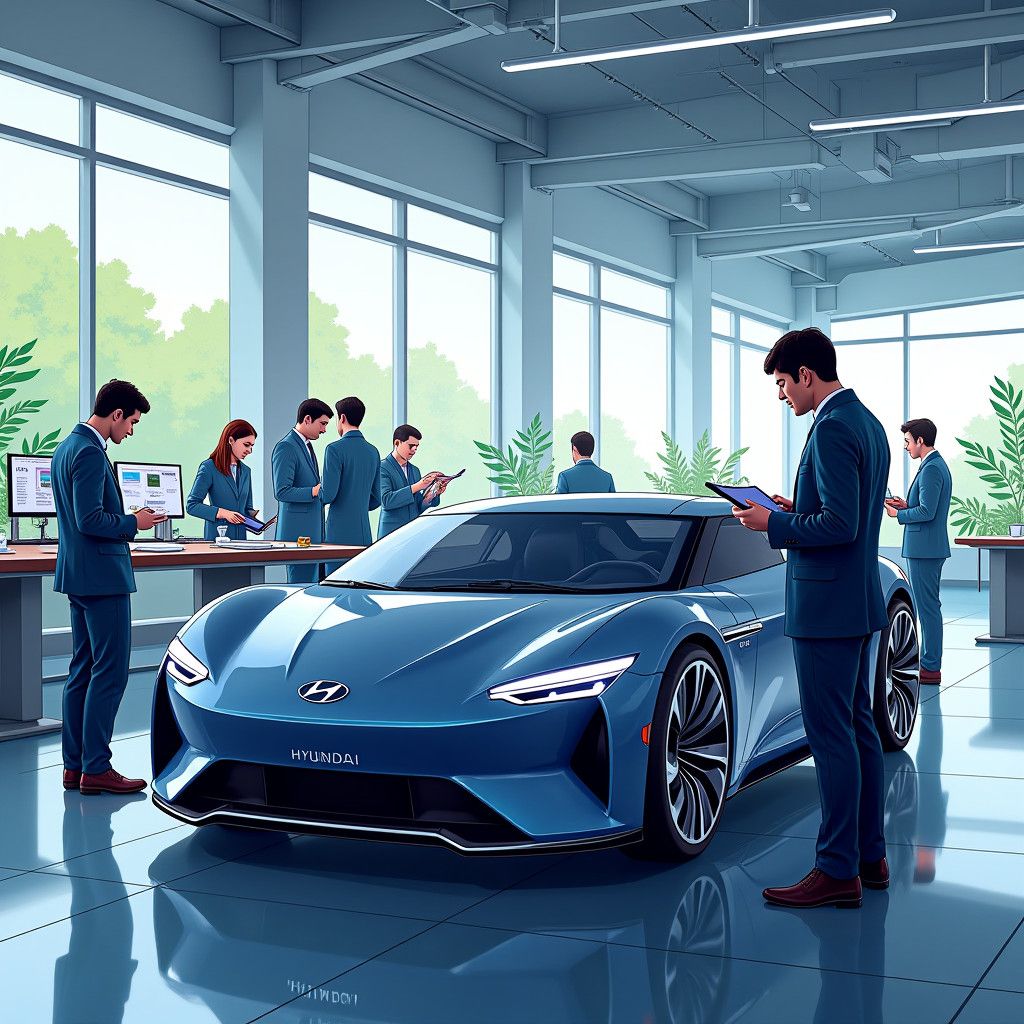Hyundai Motor Company, a key player in the global automotive market, has recently restructured its approach to developing chips for autonomous vehicles. This reorganization reflects a broader strategy aimed at enhancing its position in the highly competitive automotive sector, where cutting-edge technology integration is essential for success.
The automotive industry is undergoing significant changes, primarily driven by advancements in electric vehicles (EVs) and automation technologies. As consumer demand for smarter, safer, and more efficient vehicles rises, manufacturers are optimizing their operations to stay relevant. For Hyundai, the need to reassess its semiconductor production capabilities has become increasingly apparent.
In a pivotal move, the company has dissolved its Semiconductor Strategy Office, which was initially tasked with spearheading the development of in-house chips for autonomous vehicles. This decision indicates a strategic shift towards collaboration with external partners and suppliers rather than relying solely on internal manufacturing. By leveraging external expertise and resources, Hyundai aims to accelerate its innovation cycles and enhance the development process of its autonomous technologies.
One of the key drivers behind this restructuring is the persistent global semiconductor shortage that has plagued the automotive industry since 2020. This shortage has highlighted the vulnerabilities in supply chains and the risks associated with a narrow focus on in-house production. In many instances, automakers have faced production halts and revenue losses due to a lack of necessary chips. Hyundai, recognizing these challenges, has opted for a more diversified approach by tapping into a network of established semiconductor manufacturers.
Hyundai’s collaborations will likely include partnerships with companies such as Qualcomm and NVIDIA, which are renowned for their advanced chip technologies. Qualcomm, for instance, has been a pioneer in automotive digital cockpit solutions, while NVIDIA’s GPUs have been instrumental in enhancing the processing power for autonomous driving systems. By collaborating with these giants, Hyundai intends to secure a steady supply of cutting-edge chips while also benefiting from their expertise in software and hardware integration.
Moreover, the global focus on sustainability and environmental preservation is another reason for Hyundai’s shift in its semiconductor strategy. As the automotive industry moves towards greener technologies, the chips required for electric and autonomous vehicles need to meet higher standards of energy efficiency and performance. Partnering with specialized firms can help Hyundai ensure that its products align with current and future regulatory requirements while maintaining competitive pricing.
Hyundai’s reorganization also signals a cultural shift within the company. By moving away from its previous insular approach and towards a more collaborative model, Hyundai is fostering an environment that encourages innovation and adaptability. This shift is similar to strategies implemented by tech giants like Apple, which relies extensively on partnerships with companies like TSMC for chip manufacturing. Such collaborations have allowed these companies to maintain their competitive edge while rapidly evolving in technology-driven markets.
Consumers are becoming more selective and informed, placing a premium on brands that prioritize technological advancement and reliability. Hyundai’s new strategy aligns with this market sentiment, as it positions the automaker to deliver state-of-the-art autonomous driving solutions more efficiently. For instance, Hyundai’s commitment to autonomous technologies is exemplified by its partnership with Arrival, a startup focused on electric vehicle solutions. Such alliances enhance Hyundai’s ability to innovate and bring advanced products to market rapidly.
In conclusion, Hyundai’s recent restructuring of its semiconductor strategy for autonomous vehicles marks a critical transition as it aims to bolster its competitive position in an increasingly dynamic automotive landscape. By pivoting away from in-house production and forging partnerships with established semiconductor firms, Hyundai is embracing a model that not only mitigates risks associated with supply chain vulnerabilities but also enhances its technological capabilities. As the automotive industry continues to evolve, companies like Hyundai that can adapt quickly and efficiently will likely lead the charge in delivering the next generation of vehicles—smart, sustainable, and autonomous.












